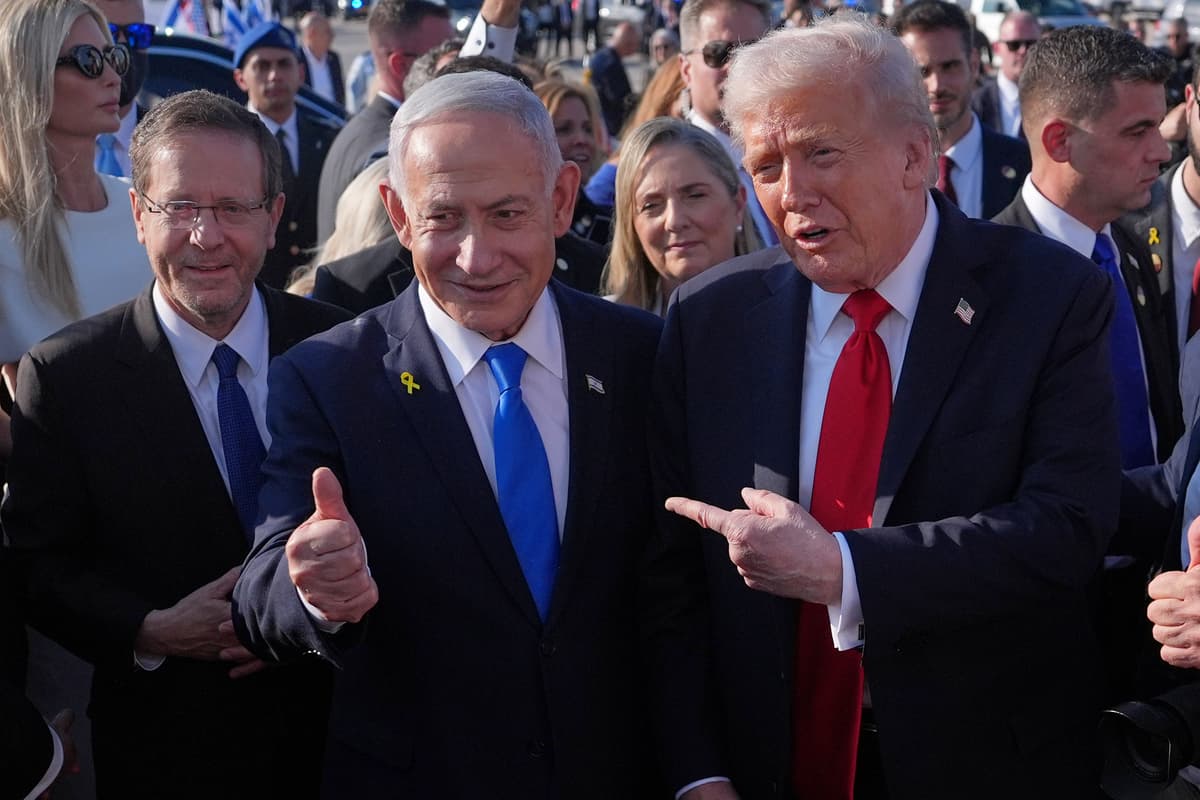Trump’s Defiance of Conventional Wisdom Proves Key to His Success in Middle East
‘What all the wise men promised has not happened, and what all the damned fools said would happen has come to pass,’ is how Lord Melbourne put it in the 19th century.

“What all the wise men promised has not happened, and what all the damned fools said would happen has come to pass.” That was the mordant comment of Queen Victoria’s first prime minister, Lord Melbourne, on the failure of a liberal reform to achieve the results promised with great assurance by the articulate liberal eminences of the day.
With two centuries of foresight, he might just as well have been describing President Trump’s triumph, celebrated “in a state of ecstasy” in Israel’s Knesset on Monday, as he secured the release of hostages held by Hamas for two years and won support from multiple Muslim nations for his 20-point peace plan between Israel and Hamas.
Or as the Free Press’s Matthew Continetti put it, “Trump has done more to advance peace in the Middle East than the State Department’s Bureau of Near Eastern Affairs could hope to achieve in a million years.”
Certainly, more than anyone has accomplished since Israel’s victories in the Six-Day War of 1967 and the Yom Kippur War of 1973, the era when it became accepted wisdom that Arab and Muslim nations would recognize Israel’s legitimacy only after it reached some form of agreement with Palestinian leaders on the creation of a Palestinian state.
The conventional wisdom was that pressure must always be exerted on Israel, the leaders and voters of which had obvious qualms about relinquishing any supervision over armed and hostile neighbors within shooting range of their geographically tiny country.
The 1990s saw a test of that conventional wisdom, with Israel accepting the Oslo framework, and President Clinton, in his final days in office, using his very considerable skills to get Israel to agree to a generous settlement, only to have it shot down at the last minute by Palestinian Authority leader Yasser Arafat.
The Second Intifada that followed, and the Hamas terrorists’ takeover of Gaza after Israel relinquished it in 2005, ended any significant support for a “two-state” agreement by Israeli voters. Yet peddlers of the conventional wisdom ignored Israelis’ characteristic bluntness and persisted in taking seriously Arab states’ ritualistic affirmations of support for a Palestinian state.
Mr. Trump chose a different path. Rather than pressuring Israel to make concessions or pleading with the Palestinians to accept them, he pursued, and secured, direct agreements between Israel and other Arab nations. During his first term, his team, led by his son-in-law Jared Kushner, forged the Abraham Accords by capitalizing on the Gulf states’ ambitions for economic growth and regional stability.
Trump moved the U.S. Embassy to Jerusalem, recognized Israel’s sovereignty over the Golan Heights, and withdrew from President Obama’s Iran nuclear deal.
In his second term, unlike President Biden, who repeatedly sought to restrain Israel’s response to Hamas, Mr. Trump backed Israel’s military offensives and followed through on his 12-day war that crippled Iran’s nuclear sites at Natanz, Isfahan and Fordow.
Pressure on Hamas’ hosts in Qatar, home to a major American air base, escalated after Israel launched missiles on September 9 to assassinate Hamas leaders there. Mr. Trump publicly disapproved of the strike and, during Prime Minister Benjamin Netanyahu’s White House visit on September 29, even urged him to call Qatar’s ruler and apologize.
Whether it was genuine remorse or a maneuver straight out of Michael Corleone’s playbook, the gesture appears to have worked. The Qataris soon pressed Hamas to accept the first stage of Mr. Trump’s 20-point peace plan, the release of all surviving Israeli hostages, after Mr. Trump reaffirmed, in the Knesset and afterward, that he would fully back Israeli retaliation should Hamas break the deal.
The former Israeli ambassador to the United States, Michael Oren, wrote that Trump “knows the language of strength.” He seems to appreciate and admire Israel’s strength and is willing to capitalize on the weakness of the country’s enemy, Hamas, and the terrorist group’s enabler, Qatar.
Here, I think, is something that separates Mr. Trump from the conventional wisdom and, by a wider margin, from those here and abroad who have been demonstrating in favor of Hamas and the Palestinians. Those who called for a ceasefire for two years are conspicuously not joining in the celebrations for the ceasefire now in place.
The demonstrators and the purveyors of the two-state solution tend to side with what they consider the oppressed over those they consider the oppressors. They consider any skepticism about the moral worth of the weaker party as “punching down.” The demonstrators chant that Israel is committing genocide. The conventional wisdom says Israel, with all its advantages, must make concessions.
Mr. Trump, and the large majority of Americans over 30 who have favored Israel over the Palestinians for many years, admire self-sufficiency, competence, inventiveness, and success. America and Israel have their faults. Yet overall and from a historical perspective, they have been glorious successes.
An example, in the spotlight this week, is the American-Israeli economic historian Joel Mokyr, recipient of the Nobel economics prize. His writings, which I can claim only to have sampled, argue that mankind’s sudden rise above subsistence economies was the product not just of technological advances but also of habits of mind that have produced self-sufficiency, competence, and creativity.
Which you can argue were characteristics of the diplomacy that experienced observers dismissed as amateurish and slapdash, and whose further course remains uncertain. In any case, its success so far has transformed Mr. Trump’s lust for his own Nobel Prize from the comic to the conceivable.
Creators.com

